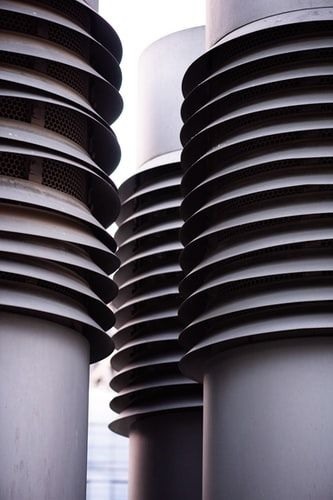Properties are nowadays subjected to follow specific set of rules and legislation to ensure the safety and health of residents and workers etc. HVAC systems (heating, ventilation, and air conditioning) are becoming more and more popular component of new constructions.
HVAC systems are mechanical systems designed to control the environment, in which it works. In essence it is said system which provides cooling and heating to residential and commercial properties.
For many people it would seem almost impossible to imagine life without any heating or air conditioning. However heating and cooling safety issues are typically overlooked when a system is running properly. Sporadic or absent HVAC unit maintenance can result in some costly and even dangerous consequences.
How does a HVAC system work?
HVAC system consists of three main functions which are interrelated with each other. Together the components provide a better in door climate through better air quality, temperature control and oxygen replenishment.
The three main functions (heating, ventilation, and air conditioning) consist of 9 components which together constitutes to the proper functioning of the HVAC system.
- Air conditioner
- Filter
- Exhaust outlets
- Ducts
- Electrical elements (Thermal expansion valve)
- Outdoor vents
- Compressor
- Coils
- Blower
Following below is the clarification of each unit, as well as some tips on how to maintain each of the subunits.
Air conditioner
This unit of the subsystem is the starting point of the whole ventilation cycle. It serves the purpose of dehumidify said air and extract heat. However, it does not alone cool down the property, but accomplish such with the collaborative aid of the other subunits.
Filter
The second subsystem which filters the air coming through. Filters should be checked and changed on a regular basis to avoid clogging.
Exhaust outlets
The third subunit of the subsystem unit that expels the exhaust created by the heating system.
Ducts
Ducts are an important yet often overlooked part of the system performance. They are the channels in which air distributed throughout the property. They constitute to the indoor ventilation system. Ducts should be cleaned every 2-5 year in order to maintain the well-functioning of the air flow.
Electrical elements (Thermal Expansion Valve)
Depending on the HVAC system’s heating unit it can use variety of different types of fuels which include electricity, solid fuels, liquids, and gasses. It usually these elements which when function properly ensure the combustion that is required to heat up the property. It can be beneficial here to inspect whether the thermostat has dead batteries or a tripped breaker.
Outdoor vents
This subunit is probably the one most people think of when they think of a HVAC system. It is the subunit which houses smoke fans which provides the air flow. They are often situated one side or on top of the property. In order to ensure a proper air flow, it is crucial to clear the vents from debris and possible vegetation. This is important when taking into consideration toxic smoke from possible fire emissions.
Compressor
This subunit plays a key role in the cooling cycle as it is responsible for compressing and converting the refrigerant from gas to liquid. The liquid then gets transported to the coils.
Coils
The evaporator coil is usually the subunit that is most likely to need maintenance or even replacement. It is part of the outdoor vents and is responsible to cool the incoming air that passes through the vents by the aid of the refrigerant. It is recommended to check the coils on an annual basis for proper functioning. If they freeze then it might be something related to the filter or refrigerant levels.
Blower
This last part of the HVAC system is the one responsible for drawing warm air through the main section of the unit. The system is considered durable if the blowers move more air efficiently through.
Although these components are what usually constitutes to the overall HVAC system, it is crucial to take into mind that some systems might differ from other. If the inspection of the HVAC system is found to be too complex, then it is always recommended to consult with a specialized technician.

